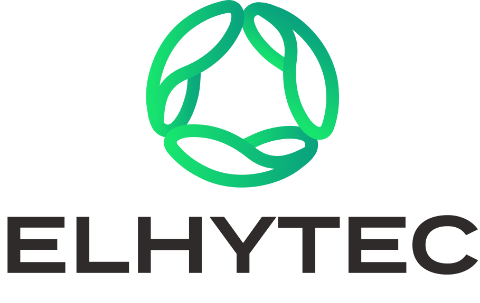Elhytec Innovation

Decoupling water electrolysis

Simplified hydrogen: our technological breakthrough
The challenge
Hydrogen produced by electrolysis suffers from a key constraint: everything has to happen at the same time
- hydrogen production must coincide with electricity availability
- hydrogen and oxygen must be produced simultaneously
This simultaneity leads to:
–>costly and constraining pressurized gas storage,
–> high technical complexity (gas separation, purification, dual circuits),
–> limited flexibility with intermittent renewable energies and intermittent uses,
–>high capital expenditures, requiring high capacity factors that are poorly compatible with variable or opportunistic electricity.
Our answer: decoupled electrolysis
Elhytec’s technology breaks this simultaneity.
It separates in time:
• electricity conversion,
• hydrogen production.
The result:
–>hydrogen produced on demand,
–>simple integration with intermittent power sources,
–> a drastic reduction in complexity, costs, and regulatory constraints,
–>hydrogen finally suited to local and autonomous uses.
How is it possible?
Elhytec’s patented innovation enables this decoupling of electrolysis by fundamentally operating it in a cyclical mode.
It is based on two core pillars:
- the formulation of the electrolyte chemistry,
- the mastery of the catalytic activation of hydrogen release

<h3

